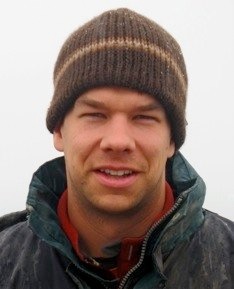An assistant professor of environmental geology at the University of Tennessee will talk about chemical oceanography in Oak Ridge on Wednesday.
The title of the presentation by Drew Steen, of the UT Department of Earth and Planetary Sciences, is “Heterotrophic Organisms in the Deep Marine Sediments†or “What to Do When You’re Hungry but You’re 100,000 Years Late for Dinner.”
The Wednesday talk starts at 7 p.m. July 20. It’s hosted by the ORION astronomy club.
The club meets monthly in the historic Grove Theater at 123 Randolph Road in Oak Ridge, TN. Meetings take place on the third Wednesday of each month, and members meet at 7 p.m. for coffee and conversation, with the program beginning 15 minutes after that. For directions, please visit the website at orioninc.org. The program is free and open to the public.
Here is an event abstract:
Burial of organic carbon in deep marine sediments represents a major long-term sink for CO2 (carbon dioxide). Carbon that is sequestered in deep marine sediments is removed from the active carbon cycle, essentially forever. The primary mechanism by which sedimentary organic carbon is converted to CO2 is the activity of microorganisms, specifically, heterotrophs which oxidize organic matter to CO2 in order to gain energy and build biomass. The vast majority of them stubbornly refuse to grow in pure culture, and therefore are extremely challenging to study directly. This discussion will focus on research related to what these microorganisms eat—and what the consequences are for the global carbon cycle.
This press release was submitted by Jennifer Hartwig.
Copyright 2016 Oak Ridge Today. All rights reserved. This material may not be published, broadcast, rewritten, or redistributed.






Leave a Reply